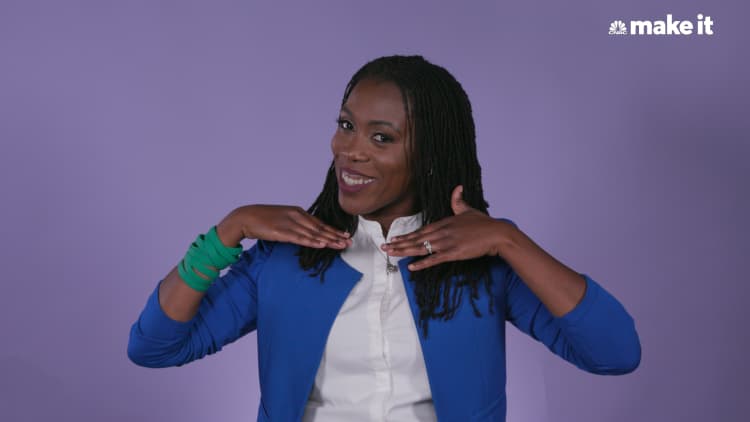Credit scores in the U.S. aren't working for many Black and Hispanic Americans, who typically have lower levels of creditworthiness than other racial groups and report feeling the system is stacked against them.
About 54% of Black Americans report having no credit or a poor to fair credit score, which is considered to be any score below 640, according to a recent survey of 5,000 U.S. adults by Credit Sesame. About 41% of Hispanic Americans report falling into this category as well.
In contrast, 37% of White Americans report having bad or no credit and only 18% of Asian Americans report similar credit circumstances.
"While the credit system was created to be blind, this data shows that Black and Hispanic Americans are being unfairly shut out of the system," Jay Moon, general manager of credit at Credit Sesame, said in a statement.
Debt and savings levels play a role in credit scores
Credit scores, which range from 300 to 850, are based on a number of factors, including account payment history, number of accounts open, the length of your credit history and the amount you currently owe. Your age, race, salary, employment history and where you live are not factored in.
While race may not be an explicit factor, the financial situations that are common for many Black and Hispanic people do play into creditworthiness. Over half of Black Americans are living paycheck to paycheck, which could affect their payment history and the rate at which they use credit to get by. In contrast, only about 44% of Americans overall report running out of money before payday, according to Credit Sesame.
Additionally, Black Americans tend to have higher rates of student loan debt than the average person and only about half own a credit card, which can be a significant help in building credit if it's used correctly.
Moreover, 30% of Black and 25% of Hispanic Americans feel they never had a chance to build good credit and believe that the system was stacked against them from the start. In fact, 30% of Black Americans and 27% of Hispanics report they were misinformed or tricked during their first experiences with credit. Only about 18% of White and 15% of Asian Americans say they were similarly deceived.
Poor credit has long-reaching consequences
Having poor credit results in a number of financial consequences, including being denied a credit card or getting charged higher interest rates on loans. It can also impact housing, employment, mental health and even relationships, Moon says. "It's unacceptable that this is affecting the lives of some more than others," he adds.
Those with a credit score within the 300 to 549 range report their poor credit history has impacted their housing, careers, relationships and even their ability to communicate. About 28% of those with poor credit say they can't rent the apartment they want, while 22% have been denied a cell phone plan, according to an earlier report from Credit Sesame.
"Creating equal credit opportunities is a critical first step toward helping to close the racial gap in our society," Moon says.
Recent innovations and new fintech products coming down the pipeline could provide a much fuller picture of credit worthiness. Experian Boost, for example, allows consumers to link their monthly utility and telecom bills to get credit for on-time, complete payments.
"Whether it's creating products explicitly for these underserved groups or providing more ways to access credit and resources, the important thing is to make progress," Moon says.
Check out: A poor credit score affects more than just getting a loan or credit card
Don't miss: Here are the 5 best personal loans of December 2020



